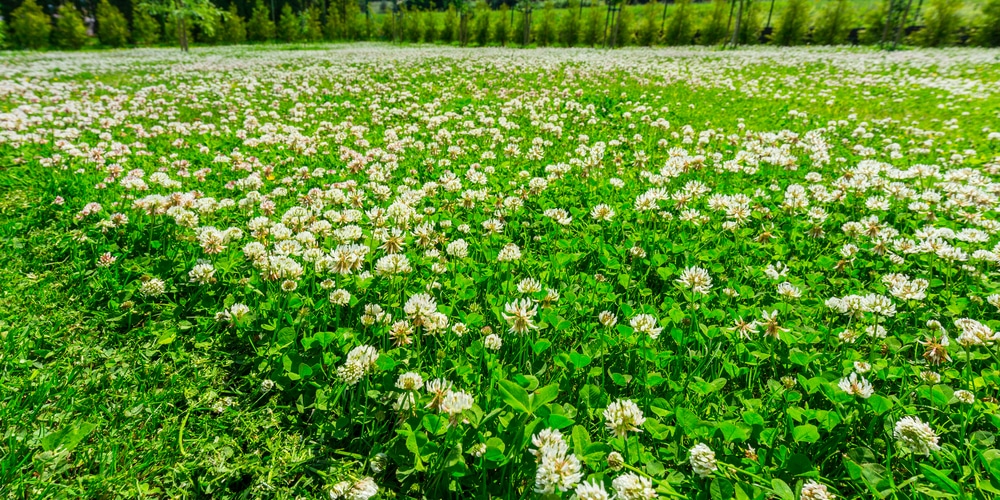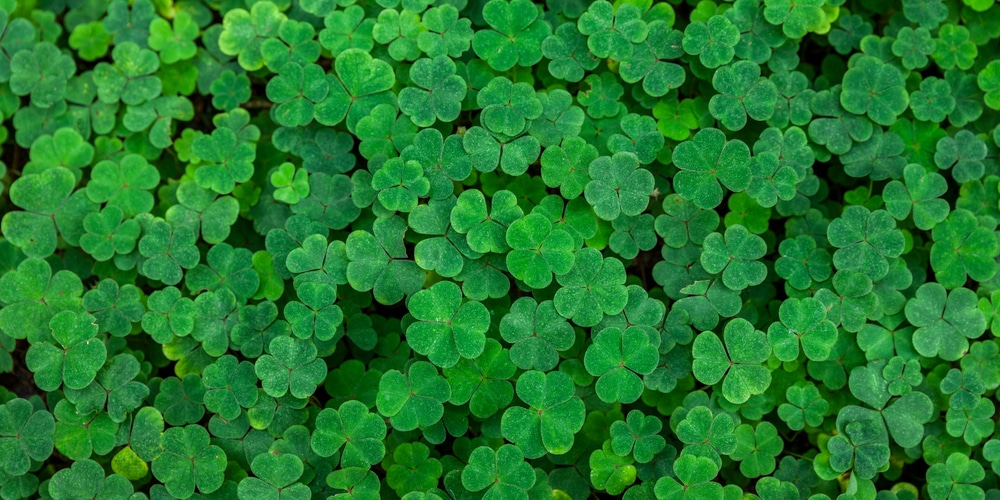We all know how challenging maintaining a healthy lawn can be. And if you don’t, let us quickly go over what it entails: weekly watering, once or twice a week mowing, regular fertilizing, weed control, and pest monitoring. Plus, you’ll need to choose a variety suitable to your garden’s conditions and weather. And that in itself might be a hassle.
Consider the cost of maintaining and grass lawn: with water and energy prices on the rise, it might not be the wisest option. But if you need an alternative, keep reading: we might have found something right for you.
Why Grow Clover
Clover makes for an ideal cover for your lawn, especially if you are looking for a low-maintenance solution to add an attractive density to your garden. After all, it is easier to grow and requires less water, nutrients, mowing, and tends to be resistant to a spectrum of diseases and pests.
But will clover grow in shade? And what can you do to make the most out of this attractive core grass? You are in the right place to explore questions to these answers!
It is not uncommon for homeowners to struggle to find plants for filling shady corners of their yards. After all, plants need sunlight to carry out photosynthesis.
And while different species might not require the same amount of lighting, it is hard to find plants with high tolerance to shade. However, leaving your garden bare where little sunlight reaches the soil might not be the best option. Instead, consider getting plants with a higher shade tolerance to maintain your garden attractive.
To discover if clover falls under this category, read on!
Will Clover Grow in Shade?
Let’s cut the clutter and go straight to the answer to this question. Homeowners struggling to find something to grow in the shady corners of their yards will be happy to hear that clover can be a solution. Indeed, this dense cover plant won’t struggle too much under light-deprived conditions.
Keep in mind that there are various types of clover, all with different tolerances to shade. While most species prefer exposure to the full sun (meaning receiving at least six to eight hours of direct sunlight per day), you can find varieties that won’t have issues under shady conditions. If you are looking for something to grow in the shade, consider planting subterranean clover: it is the species most tolerant to shade.
Of course, like most plants, it will grow better under the sun, where it can receive all the nutrients it needs to carry photosynthesis. However, planting it under the shade won’t give you unsatisfactory results. All you may experience is a slow down in the growth rate.
There are several advantages to adding clover to your lawn instead of grass. This plant stays green all summer, even with little watering, as it is relatively tolerant to drought and remains green until the first frost. If you live in a warm region, you might be lucky enough to see it green for the entire year.
Clover requires little to no mowing and doesn’t need fertilizer or herbicides. Plus, it is a cheaper solution (costing about $4 per 4000 square feet), great if you are trying to cut your expenses. However, that might come at the cost of its durability: this perennial will require reseeding every couple of years to maintain an attractive density.
Clover Care: Our Tips
As we mentioned, maintaining a clover lawn is relatively easy. The truth is that this plant adapts to most climates and soil conditions. But for best results, consider planting it in sandy or loamy soils with good drainage. The ideal pH range is between 6.0 to 7.0. If your garden has considerably different conditions, make the necessary amendments to recreate an optimal environment for your clover to thrive.
Another crucial factor for the growth of a healthy clover lawn is rainfall: if you live in a dry region, you might have to increase watering. Otherwise, relying on average rain will be more than enough since clover plants have deep roots that easily reach nutrients. Plus, these plants will feed themselves (by producing nitrogen), meaning you won’t have to add fertilizer or worry about pesticides.
Will Clover Grow in Shade?: Conclusion
Keep in mind that contrary to other lawns, clover might suffer from heavy foot traffic. Keep that in mind before adding it to your garden.
Related Article: 0 20 20 Fertilizer for Clover


